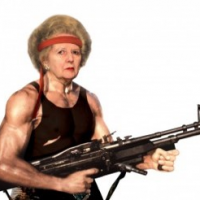Almost a quarter of a century since her resignation, Margaret Thatcher remains one of the most controversial figures in modern British history. This module challenges the myths of both Right and Left, setting the Thatcher governments in their social, political and cultural context. Drawing on newly released archives from both Britain and America, and on an array of literary, cultural and televisual sources, it assesses Thatcher not just as a politician but as a figure in popular culture. Students will explore the multiple 'crises' of the era - from the ‘Winter of Discontent' and the miners’ strike to the Cold War, the Apartheid struggle and the AIDs pandemic. They will assess the relationship between Thatcher and Reagan, the rise of ‘Euroscepticism’ and the struggle with the IRA in Northern Ireland, alongside great campaigning movements such as the Campaign for Nuclear Disarmament, 'Red Wedge' and ‘Live Aid’. Students will consider Margaret Thatcher's political and cultural reputation from British and international perspectives, and reflect on the global impact of Thatcherism, from the 'Troubles' in Northern Ireland to German reunification, and from the referendum on British membership of the European Community in 1975 to the 'special relationship' with America. The module analyses the contested meanings of ‘Thatcherism’ and its influence on New Labour. It concludes by assessing whether there was a ‘Thatcher revolution’ at all, and why the period remains so central to contemporary political debate. This module MUST be taken in conjunction with HST6700 History Research Dissertation. This module is open to students on all single and joint honours history degrees with the exception of V130 Medieval History.

HST6738 - Making Thatcher's Britain: The Thatcher Revolution, 1975-1997 - 2024/25
Almost a quarter of a century since her resignation, Margaret Thatcher remains one of the most controversial figures in modern British history. This module challenges the myths of both Right and Le...